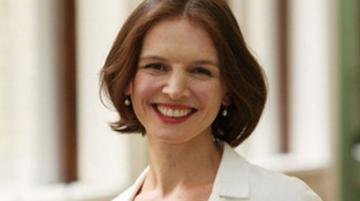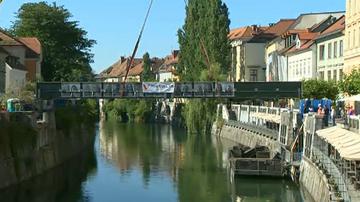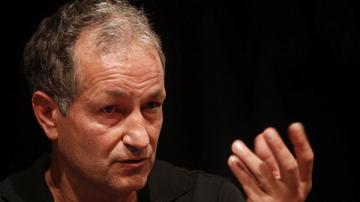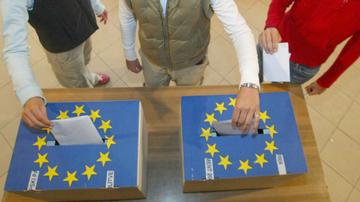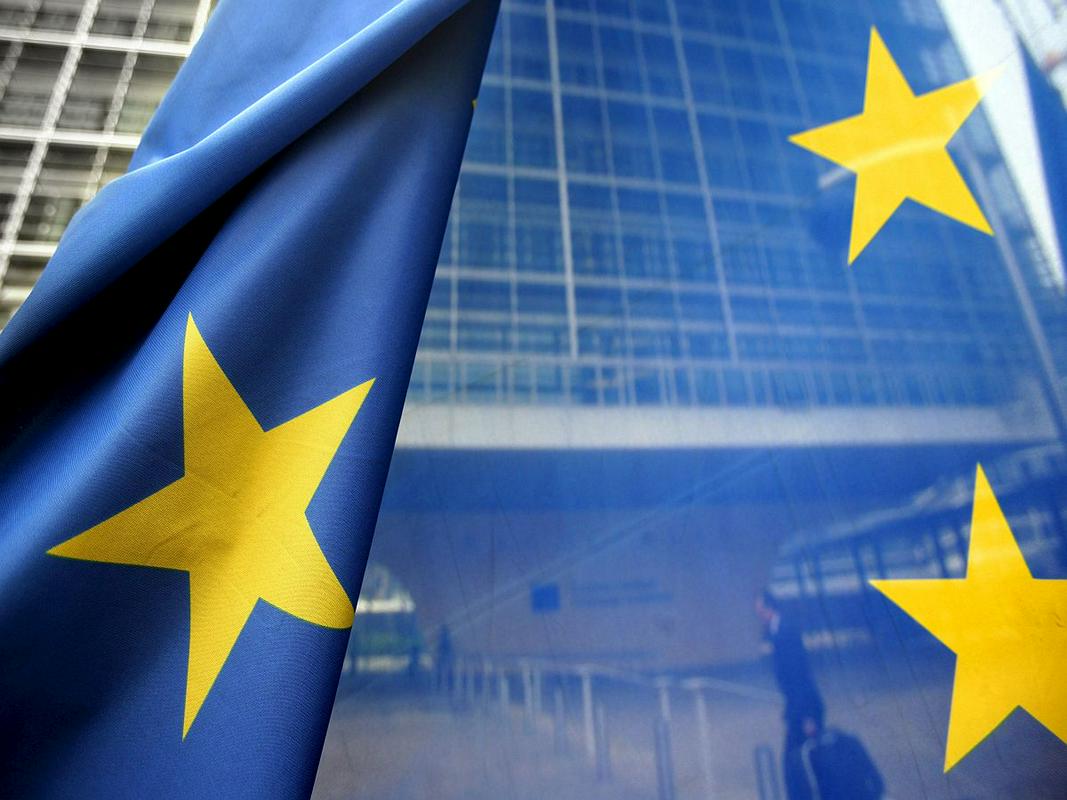
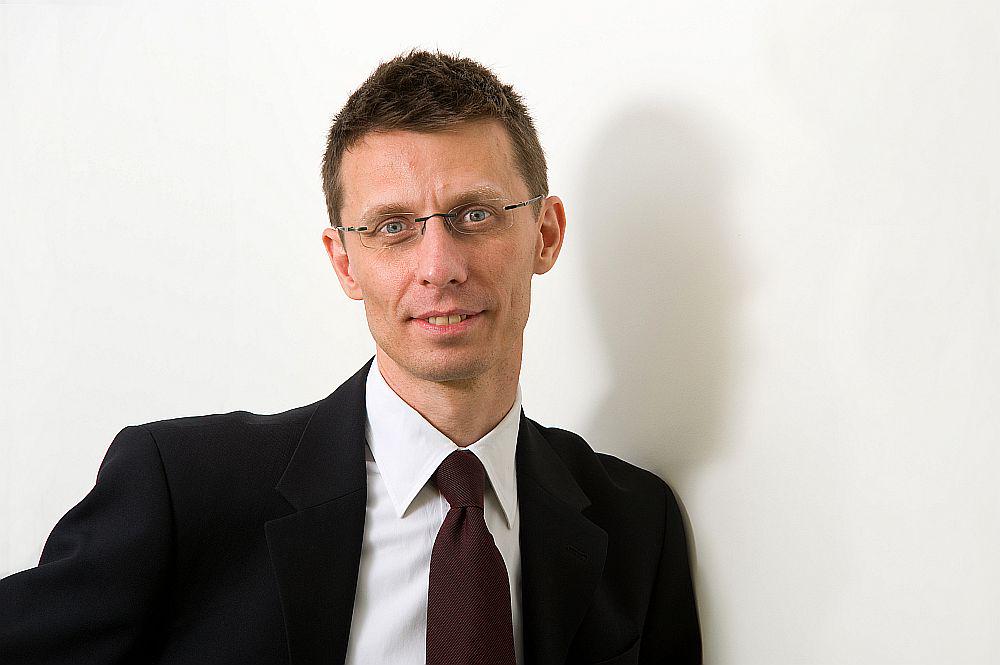
Is it the parliamentary elections that will most likely be held in mid July that will occupy the minds of the political elite in Slovenia? If so, this results in the electorate being bereft of substantive party policy information to fully engage with the EU elections. Instead, citizens will hear only the usual merry-go-round of internal politicians making pretty speeches without substance.
Meanwhile, a few MEP candidates attended the only ‘public’ debate to mark 9th May, Europe Day, and Slovenia’s 10th anniversary of EU membership entitled ‘More Europe – More Slovenia’ (the, ‘politicians only’, event was held later on 9th May in the Cultural Centre of European Space Technologies in Vitanje). Both keynote speakers, Prime Minister Alenka Bratušek and Slovenian EU Commissioner Janez Potočnik, highlighted EU successes, such as open boarders, freedom to travel, introduction of Euro in Slovenia and the fact that in the last decade we received twice as much money from the EU budget as we put in. Disappointingly, both just slightly touched upon their visions for the EU of the future. A vision that other member states agree is desperately needed to be developed and proposed can actually be progressed by Slovenia. This act will enhance our standing in Europe and making the country a credible European partner. The future Slovenian Commissioner can propose and gain support of the proposed vision in Brussels and among the EU Members States.
This position could continue to be held – theoretically – by Janez Potočnik as there remains a chance of him being put forward for his third term by this government. At the end of May, straight after the elections, EU leaders will sit down in Brussels to hold their first informal discussions on the composition of the new European Commission.
However, Janez Potočnik decided not to run as a lead candidate of a ‘united Liberal list’, bringing together four ALDE parties from Slovenia. He has also decided, as it appears, not to enter Slovenian politics at all, causing some of the centre-left parties to be less than happy at his decision. However, running for the third term could be contrary to his position, expressed as part of his Europe Day speech, that the EU of the future must also ‘solve the question of a democratic deficit’, making European policies more relevant for the EU citizens. The gap between the European institutions, being personified by the Commissioners and MEPs for example, is getting deeper and deeper, faster than the deepening of the future EU as some would like it to see. However, his popularity at home fills him with understandable confidence.
Prime Minister Alenka Bratušek’s speech at the Europe Day event could therefore be seen as a technical manoeuvre to place herself as a candidate for the European Commissioner. It is accepted that Bratušek has the necessary set of political experience and sensibility that is so badly needed of the future Slovenian commissioner. Whilst EU purists (and EU treaties for that matter) would say that the Commissioners work in the interest of the EU as a whole, the fact remains that the post of a Commissioner is a political post as the European Commission is, at the end of the day, a political organisation. I think that the functioning of the second Barroso’s Commission has demonstrated how much some EU Member States influence the workings of the Commission.
Brussels sources talk about Bratušek in a positive way and in her favour. The future European Commission President will have a hard time putting together a gender balanced Commission. Bratušek is a new generation politician, and as an elected politician possesses the so-much needed political legitimacy to be appointed, and happens to be female.
Despite being a leader of the Social Democrats, Igor Lukšič has never tested his political ideology or popularity based on this ideology in a political vote leaving the electorate with little to go on. Whilst it is reported that he is said to be interested in the Commissioners post, is it the reality that forces within his party would be happy to see him depart to Brussels? The fact that Lukšič ‘finds’ himself on top of the EP election list for the Social Democrats does however indicate an intention to be a player on the Brussels scene.
Former Prime Minister Anton Rop is also rumoured to again be interested in becoming Slovenia's Commissioner. Media reports suggest this position may have been promised to him five years ago by then Prime Minister (now President) Borut Pahor. It was further suggested that Pahor feared that a hugely-popular Potočnik could enter the Slovenian political scene and therefore pose, a political threat.. Rop later got a post of a vice-president of the European Investment Bank. Otherwise very diligent, Rop is today more versed and experienced European politician, something that his party colleague Lukšič does not posses.
While we might still have some time before the official candidates have to be named, the behind-the-scenes horse-trading begins the day after the polling stations close on May 25.
The work ahead of the future Slovenian Commissioner will not be easy – in order to be a successful Brussels player and be able to defend Slovenia's interests, he or she will have to be extremely politically skilful. Three things will be crucial for his/her success and as many of you know I have first hand experience to state this view: a) a team of the best advisers, experienced in Brussels but also being extremely sensitive to the developments back home, b) very precisely defined Slovenian position vis-a-vis the EU with clear priorities based on a comprehensive strategy and our vision of the new EU and c) a comprehensive network of experts that could be called upon for their expertise, both part of the group of Slovenians who already work in the institutions or the group of Slovenian civil servants, seconded to the EU.
Unfortunately for the new Commissioner, Slovenia does not know what it wants from the EU or what kind of EU it wants to see in the future. At the start of the financial crisis, which coincided with the end of the accepted successful Slovenian EU Presidency, the then government decided to practically close down all EU affairs departments across the civil service instead of using the once-in-a-generation opportunity that the EU Presidency gave us to set clear priorities and position Slovenian clearly in areas of EU policies where our economic and political interest lay. Instead, experienced individuals were fired or demoted, all due to some perceived narrow-minded views.
Today, we are unfortunately not a passenger on any European speed train – we are simply awaiting our next train at the local station. Walking up and down the platform we passively observe the fast trains passing by in high speed, not knowing how to jump on board...
You can follow Dragan Barbutovski on Twitter.
Dragan Barbutovski





















































